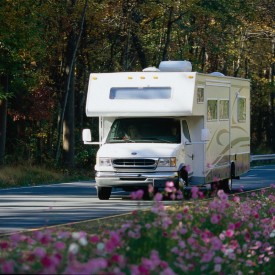Survey: Travel Trailers and Class C’s Most Popular RV Rentals

According to the new survey by the RV Rental Association (RVRA), RV rental revenue will continue upward during the 2019 peak rental season with conventional travel trailers and Class C motorhomes being the most widely available RV product types.
Fifty-two percent of the 109 RV rental operators responding to the survey anticipate taking in more revenue in 2019 than in 2018, and 34 percent believe it will be the same as last year. That growth would follow a strong 2018 when 63 percent of RV rental operators reported higher revenue, versus 2017, including 16 percent who experienced revenue growth of more than 50 percent.
Conventional trailers are expected to account for 52 percent of this year’s rental fleet, up from 51 percent in 2018, while Class C’s will account to 34 percent, up from 32 percent in 2018, according to the survey respondents.
“Because pickup trucks and SUVs capable of towing many travel trailers are some of the most popular vehicles in North America, it’s no surprise that towable RVs are popular with renters,” said Scott Krenek, RVRA chairman and owner of Krenek RV Super Center in Coloma, Mich. “The RV rental market is healthy and has the potential for more growth. That’s why so many RVRA members are looking forward to a great summer.”
The rental operators offering towable RVs stated that most of their customers are “tow & go” renters, since they already own a vehicle that’s able to safely pull an RV trailer. But many operators also report significant portions of their business comes from customers who do not want to tow the trailer they rent, but, instead, want the rental company to deliver it to a campground and set it up for them there.
A smaller but still significant portion of towable RV rental customers want the trailer delivered and set-up at site of outdoor concerts, festivals, sporting events, etc.
Class A motorhomes will account for 5 percent of the rental fleet this year, while Class B motorhomes, fifth wheels, toy haulers and soft-sided pop-ups are each expected to account for 2 percent of the fleet this year.
In recent years, traditional “brick & mortar” RV operators faced new competition from “peer-to-peer” online RV rental platforms, but 47 percent of those who consider themselves to be brick & mortar operators believe peer-to-peer platforms help their business by providing a new marketing channel. Posting rental units on peer-to-peer platforms during the winter months, when the RV rental business is slow, is another way traditional brick-and-mortar operators use the new technology.


